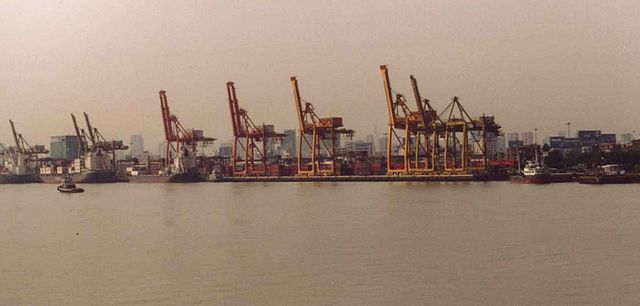
“In the context of a weak economy and a downturn in foreign trade, we now estimate that throughput levels contracted at both the country’s main ports, Laem Chabang and Bangkok in 2014,” said Business Monitor International (BMI) in its latest predictions.
But, it added, it projects a healthy recovery in 2015, with growth rates of between 2 percent and 6 percent.
“We are forecasting a recovery in Thailand’s economic outlook 2015, with GDP set to increase by 4.1%, after an almost standstill year in 2014.”
It estimated that 2014 was weaker than initially hoped, with growth of only 0.7%, due to a combination of factors. Despite ongoing efforts by the ruling junta to stabilize the political situation and stimulate the economy, the recovery was slow to gain traction, it said. Negatives included a subdued export and investment performance, along with depressed construction and manufacturing sectors, particularly automobiles.
Yet going into 2015, it sees “growth-positive factors finally beginning to feed through.” They include the beneficial effect of lower oil prices (Thailand imports 85% of its crude oil consumption), a gradual recovery in tourism, fiscal stimulus and the government move to speed up the infrastructure investment approval process.
There are still challenges ahead, with high household indebtedness and the continuing threat of political volatility among them. On the medium term to 2019, “we expect average annual GDP growth of 4.0%,” said the research and consultancy service.
On projections for key Thailand ports, gross tonnage at Laem Chabang, the country’s largest port, is set to rise by 6.67% to 64.438 million tonnes in 2015, and will average growth of 6.1% a year over the medium-term forecast period to 2019.
Box handling at the same port is seen to rise 6.2% to 6.372 million twenty-foot equivalent units in 2015, and will grow by an average of 5.9% over the medium term.
At the Port of Bangkok, BMI projects that tonnage will grow by 3.7% in 2015 to 21.106 million tonnes.
Portcalls in a recent report said the Bank of Thailand (BOT) had confirmed that Thailand’s economy took a slower pace in December and the fourth quarter of last year.
In December 2014, the country’s economic recovery remained slow despite lower cost of living and falling oil prices as consumer spending softened and businesses awaited economic recovery and clarity on government’s infrastructure investment, said the central bank.
But the bank also pointed out a gradual recovery in overall economic activity in the fourth quarter of 2014.
Photo: Ahoerstemeier









